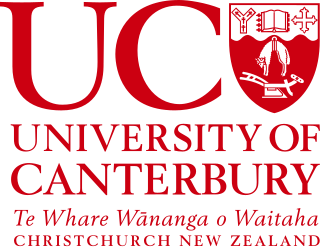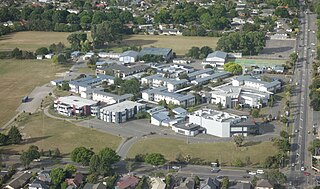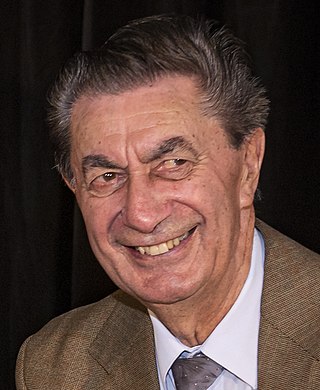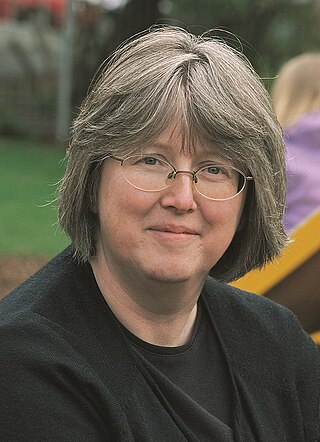
The University of Canterbury is a public research university based in Christchurch, New Zealand. It was founded in 1873 as Canterbury College, the first constituent college of the University of New Zealand. It is New Zealand's second-oldest university, after the University of Otago, which was founded four years earlier, in 1869.

Burnside High School is a state co-educational secondary school located in the suburb of Burnside in Christchurch, New Zealand. With a roll of 2550 students, it is the largest school in New Zealand outside Auckland, and is among the country's four largest schools.

Clarence Edward Beeby, most commonly referred to as C.E. Beeby or simply Beeb, was a New Zealand educationalist and psychologist. He was influential in the development of the education system in New Zealand, first as a director of the New Zealand Council for Educational Research (NZCER) from 1936, and then as Director of Education from 1940, initially under the First Labour Government. He also served as ambassador to France and on the UNESCO executive.
Dame Jean Marjory Herbison was a New Zealand academic, educator, researcher and Chancellor of the University of Canterbury. She was the first woman to hold the post of chancellor at a New Zealand university.

Angus Hikairo Macfarlane is a New Zealand academic and professor at the University of Canterbury.
Natural Hazards Commission – Toka Tū Ake, also known as the Earthquake Commission Toka Tū Ake, is a New Zealand Crown entity that invests in natural disaster research and education as well as providing natural disaster insurance to residential property owners. The Natural Hazards Insurance Act 2023, which came into effect on 1 July 2024, made a number of changes, including changing the name of the Earthquake Commission to Natural Hazards Commission.
The UC CEISMIC Canterbury Earthquakes Digital Archive programme was established in 2011 with the aim of preserving the knowledge, memories and earthquake experiences of people of the Canterbury region. The website provides federated access to a broad range of earthquake-related research material, gathered by leading New Zealand cultural and educational organisations.

Jonathan Ngarimu Mane-Wheoki was a New Zealand art historian, academic, and curator. He was a pioneer in the study of contemporary Māori and Pacific art history.
Beatrice Eleanor Beeby was a New Zealand educator. She was key figure in the establishment of the nursery playcentre movement in New Zealand, which developed into the present-day Playcentre organisation.

Helen May is a New Zealand education pioneer. She has been an eloquent activist and academic in education, with a strong feminist focus on early childhood education. Her advocacy has been characterised by its focus on the rights and needs of children and teachers, expressed by an active and collaborative engagement with educational institutions, trade unions, the Ministry of Education and other government agencies.
Janinka Greenwood is a New Zealand academic, playwright and poet. Since 2018, she has been professor emerita in the School of Teacher Education at the University of Canterbury.

Judith Maree Duncan was a New Zealand academic, and was a full professor at the University of Canterbury, specialising in early childhood education. She died of motor neurone disease in 2015.
Alexandra Claire Gunn is a New Zealand academic, and is a full professor at the University of Otago, specialising in inclusive education, teacher education and educational assessment.
Jocelyn "Joce" Grace Nuttall is a New Zealand education academic, and is a full professor at the University of Canterbury, specialising in teacher education, early childhood curriculum policy and workforce capacity-building.

Christine M. Kenney is a New Zealand sociologist, and is a Distinguished Professor of Disaster Risk Reduction at Massey University. She is the first Māori woman to lead a UN international science caucus. In 2024 Kenney was elected to the Council of the Royal Society Te Apārangi.

Arohia Ernestine, Lady Durie (née Kōhere) is a New Zealand Māori educationalist. She was the first professor of Māori education at Massey University, where she was appointed full professor in 2001. Durie led the development of the first te reo Māori immersion graduate course. She retired from the university before or during 2010. Durie's husband is psychiatrist Mason Durie, and their son, Meihana, is also a professor at Massey University.
Josephine Florence Fletcher is a New Zealand academic, and is a full professor in the School of Teacher Education at the University of Canterbury, specialising in literacy and learning environments.
Sussie Celna Morrish is a Filipina–New Zealand marketing academic, and is a full professor at the University of Canterbury, specialising in entrepreneurship, strategic marketing and the hospitality industry.

Rosemary Ann Du Plessis is a New Zealand academic sociologist, and is an adjunct associate professor at the University of Canterbury. In 2020 she was appointed an Officer of the New Zealand Order of Merit for services to women and education.
Caroline Jane Bell is a New Zealand psychiatry academic, and is a full professor at the University of Otago, specialising in investigating the psychological impacts of trauma. She led the Canterbury District Health Board's response to mental health after the Christchurch earthquakes and led a collaboration on the effects of the Christchurch mosque shootings.









